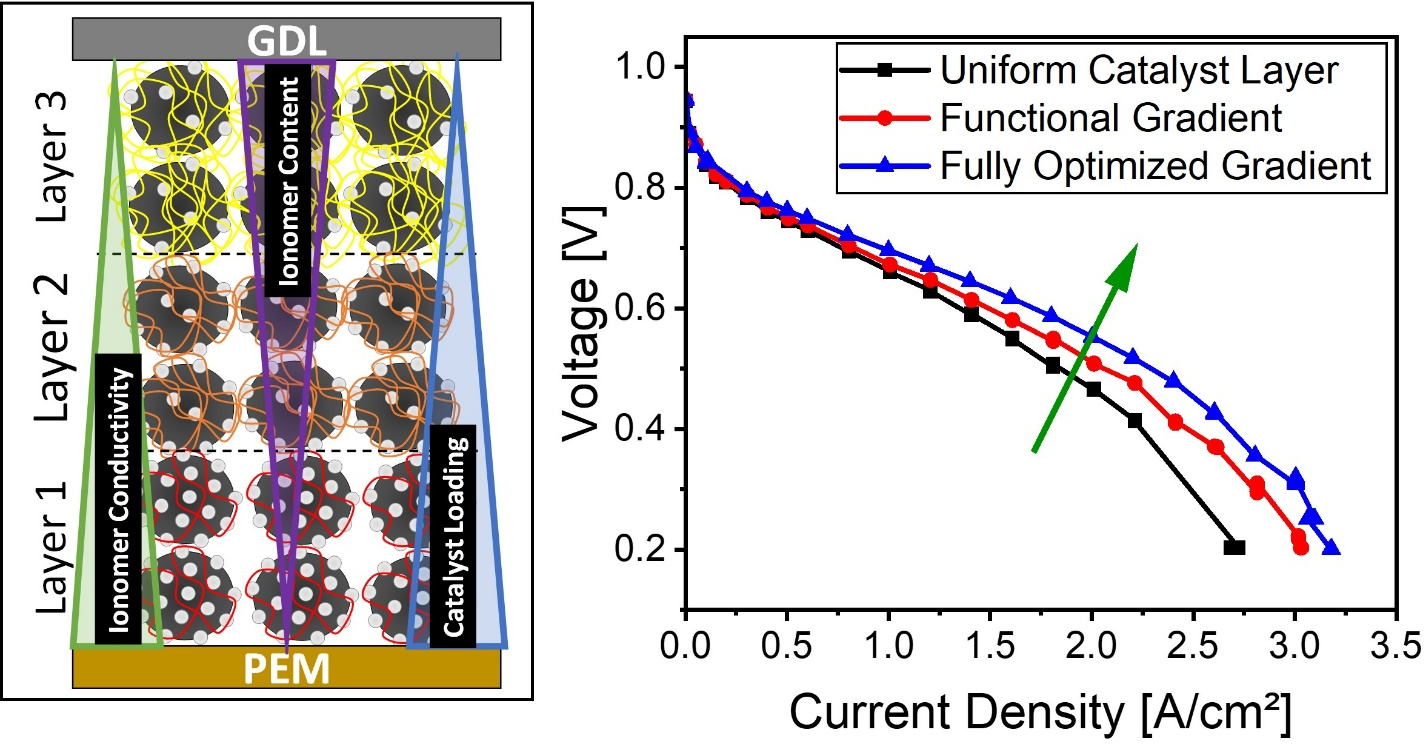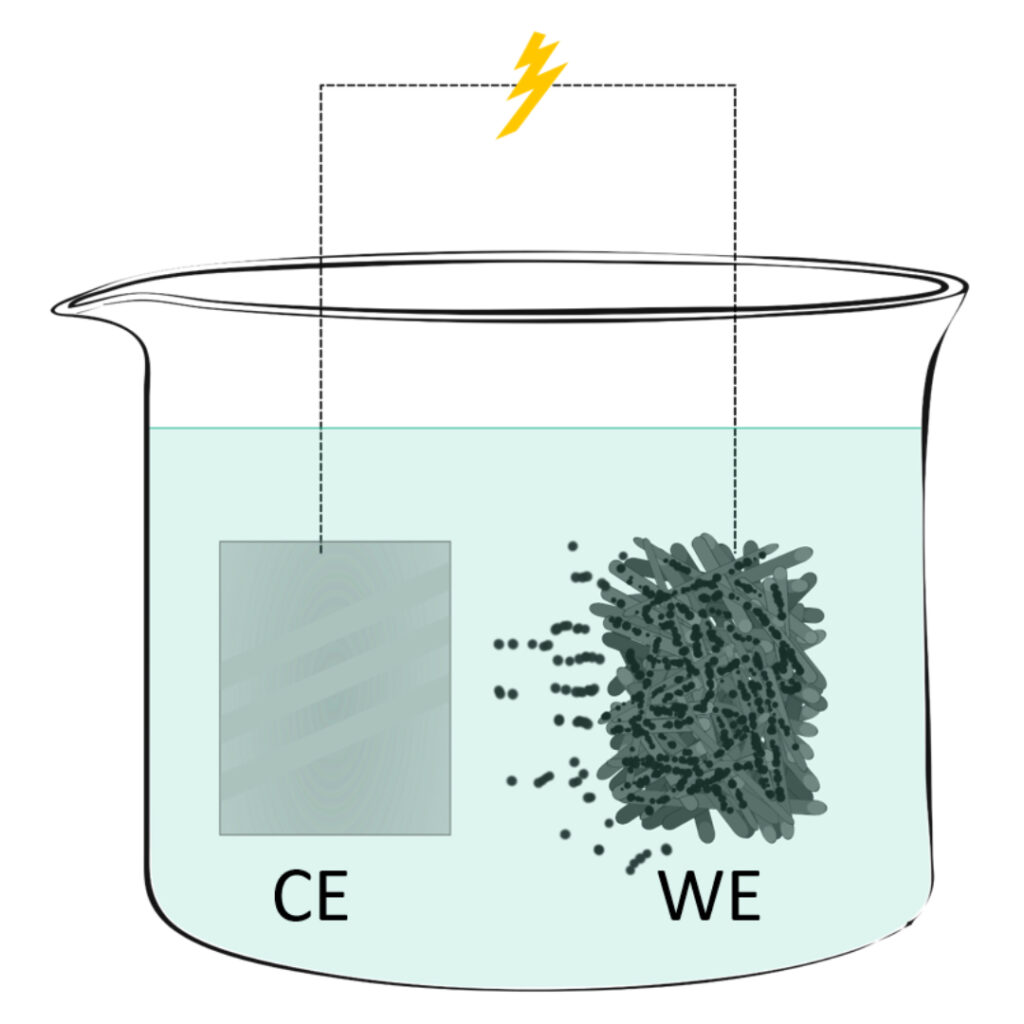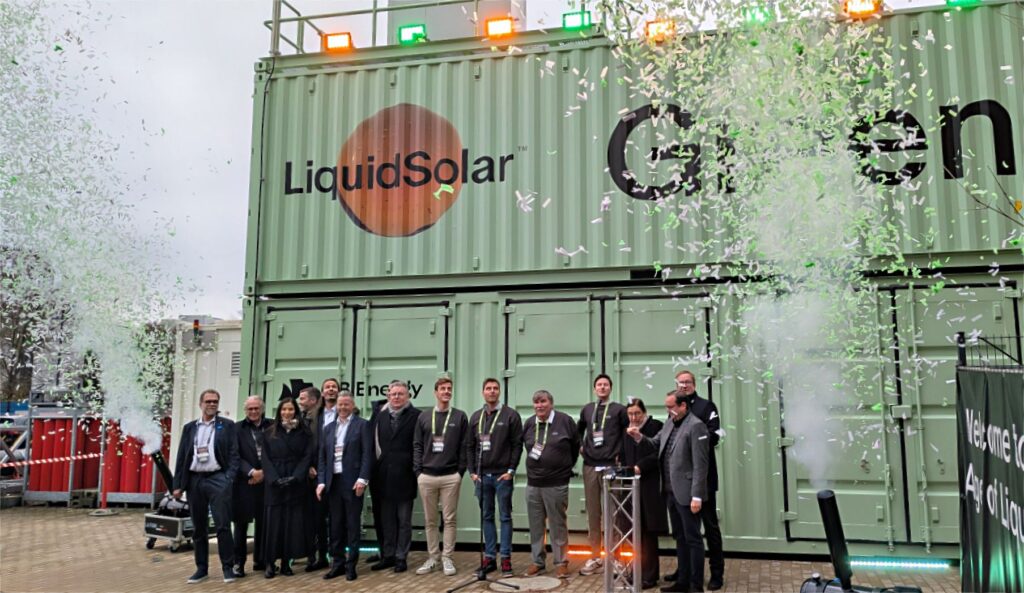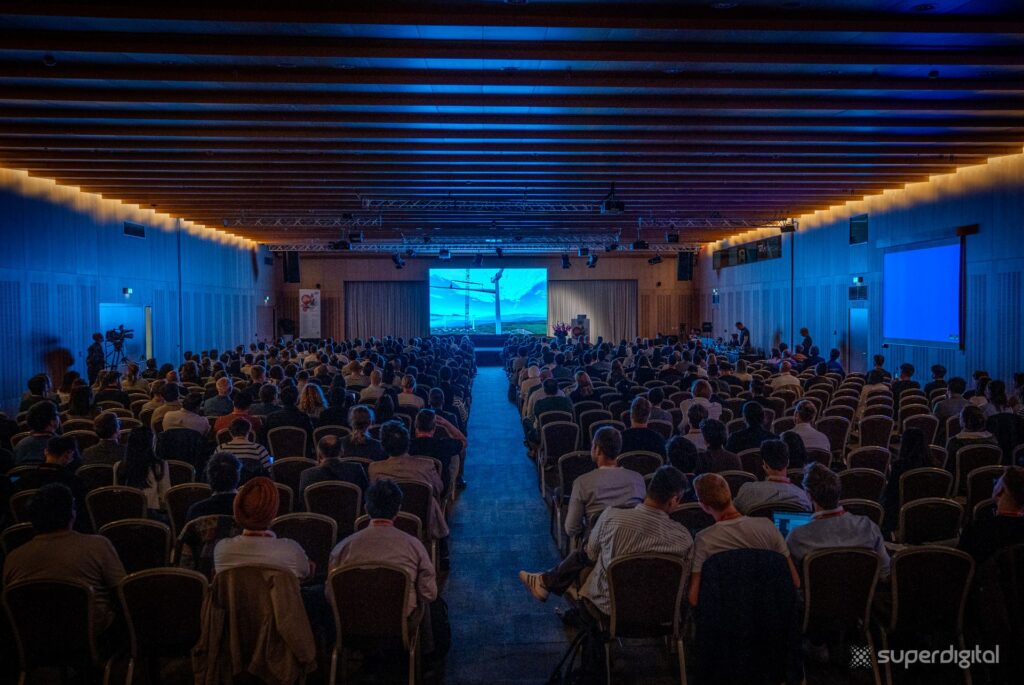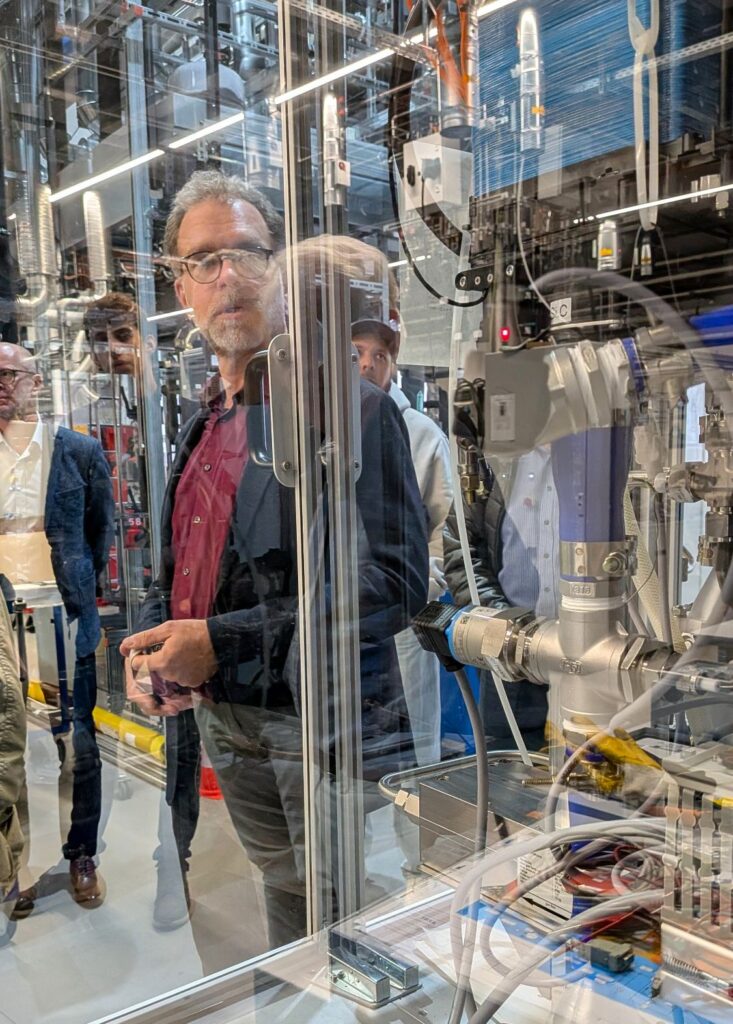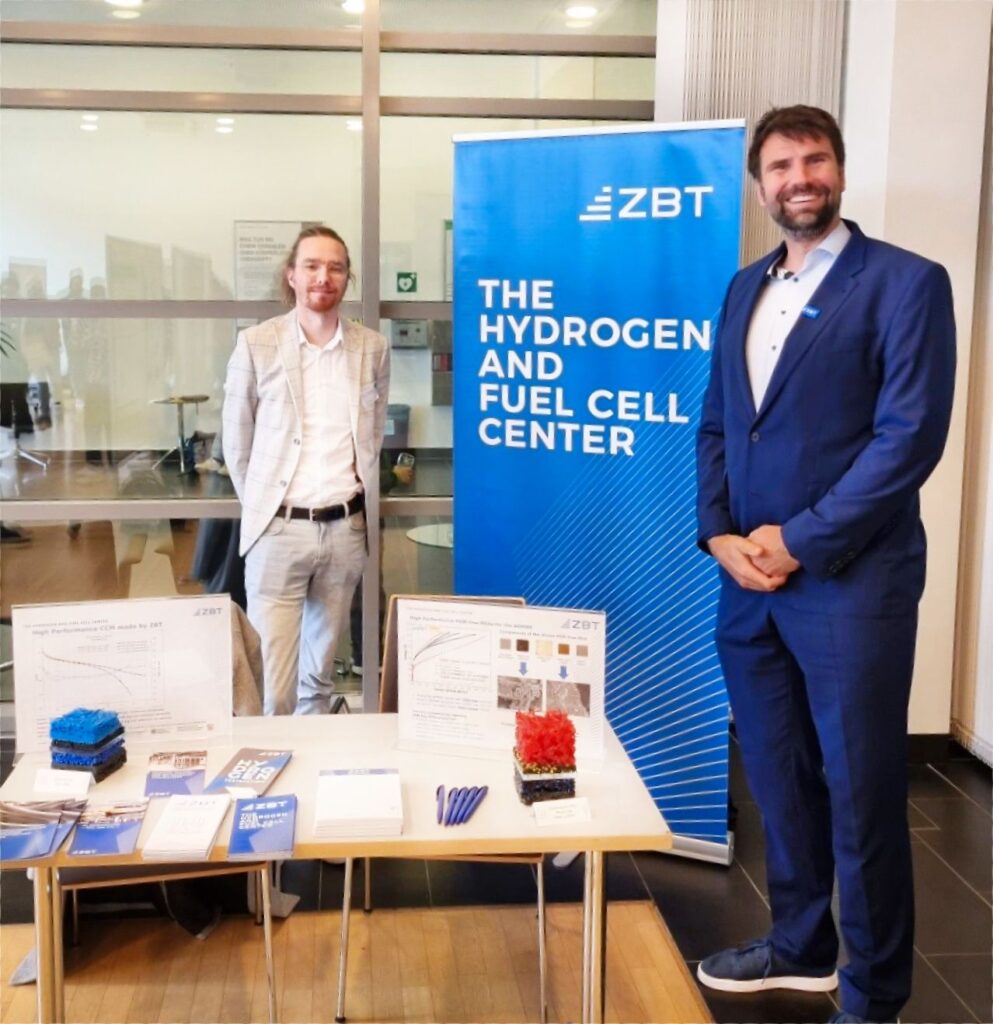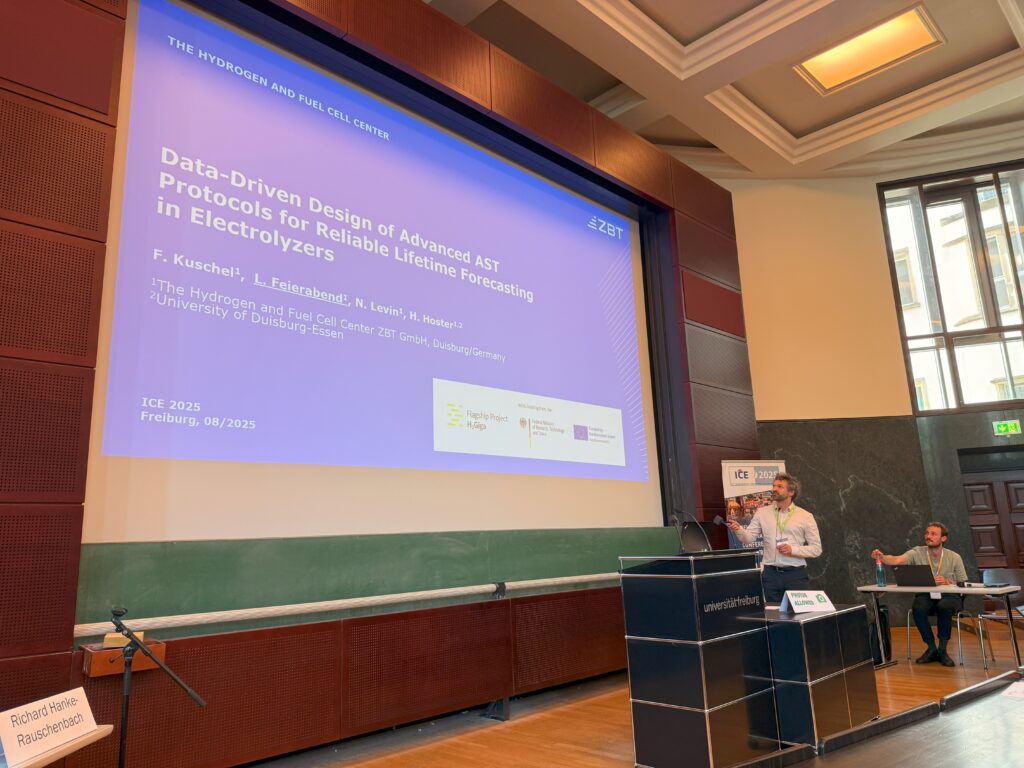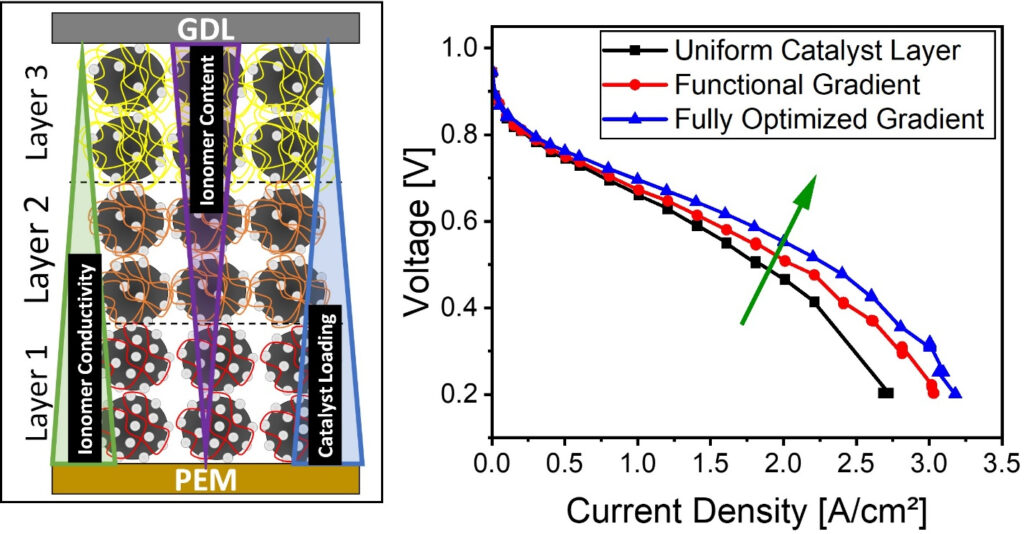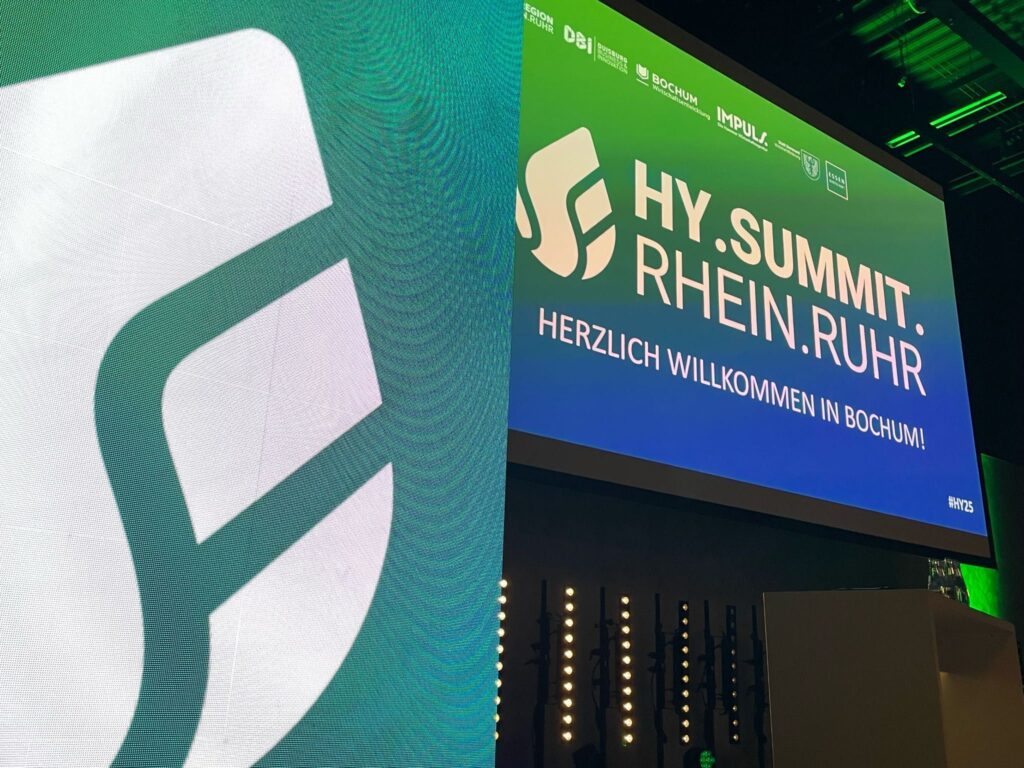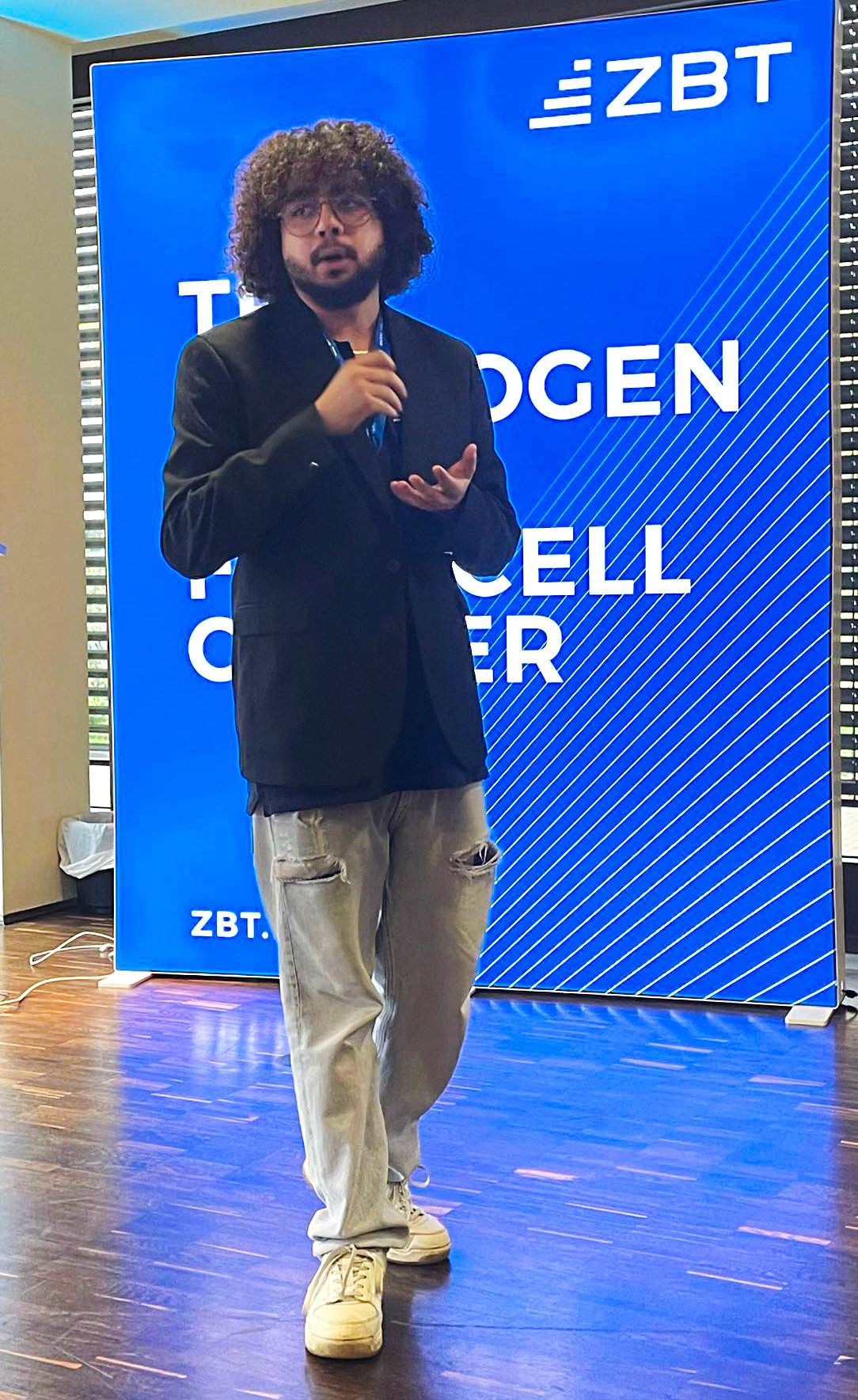
Graded Catalysts in Fuel Cells – Increased Performance Without Higher Platinum Usage
Open access paper published in Energy Materials: Clever gradient design in catalyst layer makes fuel cells more efficient. Precious metals used only where necessary.
One approach to making fuel cells more powerful or more cost-effective, or both, is to optimise catalyst layers. Adib Caidi (pictured), a doctoral student at ZBT, has now published a study exploring the idea that gradients in the distribution of platinum, carbon and ionomer in the catalyst layer could
- improve catalyst utilisation near the membrane,
- improve gas diffusion and water management near the gas diffusion layer,
- and balance ion conductivity across the catalyst layer.
His motto: maximum performance with minimum platinum.
